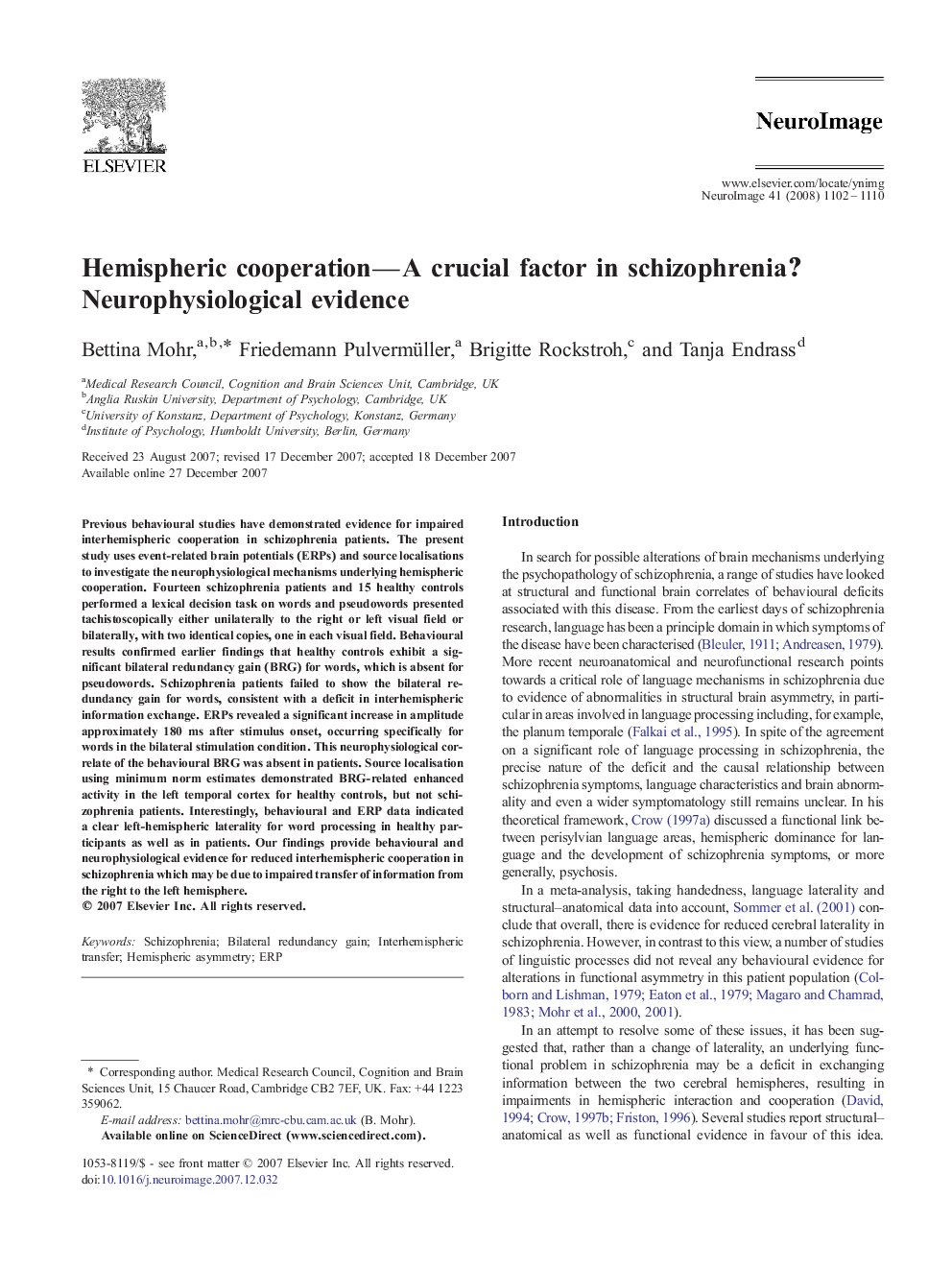| Article ID | Journal | Published Year | Pages | File Type |
|---|---|---|---|---|
| 3072932 | NeuroImage | 2008 | 9 Pages |
Abstract
Previous behavioural studies have demonstrated evidence for impaired interhemispheric cooperation in schizophrenia patients. The present study uses event-related brain potentials (ERPs) and source localisations to investigate the neurophysiological mechanisms underlying hemispheric cooperation. Fourteen schizophrenia patients and 15 healthy controls performed a lexical decision task on words and pseudowords presented tachistoscopically either unilaterally to the right or left visual field or bilaterally, with two identical copies, one in each visual field. Behavioural results confirmed earlier findings that healthy controls exhibit a significant bilateral redundancy gain (BRG) for words, which is absent for pseudowords. Schizophrenia patients failed to show the bilateral redundancy gain for words, consistent with a deficit in interhemispheric information exchange. ERPs revealed a significant increase in amplitude approximately 180Â ms after stimulus onset, occurring specifically for words in the bilateral stimulation condition. This neurophysiological correlate of the behavioural BRG was absent in patients. Source localisation using minimum norm estimates demonstrated BRG-related enhanced activity in the left temporal cortex for healthy controls, but not schizophrenia patients. Interestingly, behavioural and ERP data indicated a clear left-hemispheric laterality for word processing in healthy participants as well as in patients. Our findings provide behavioural and neurophysiological evidence for reduced interhemispheric cooperation in schizophrenia which may be due to impaired transfer of information from the right to the left hemisphere.
Related Topics
Life Sciences
Neuroscience
Cognitive Neuroscience
Authors
Bettina Mohr, Friedemann Pulvermüller, Brigitte Rockstroh, Tanja Endrass,
